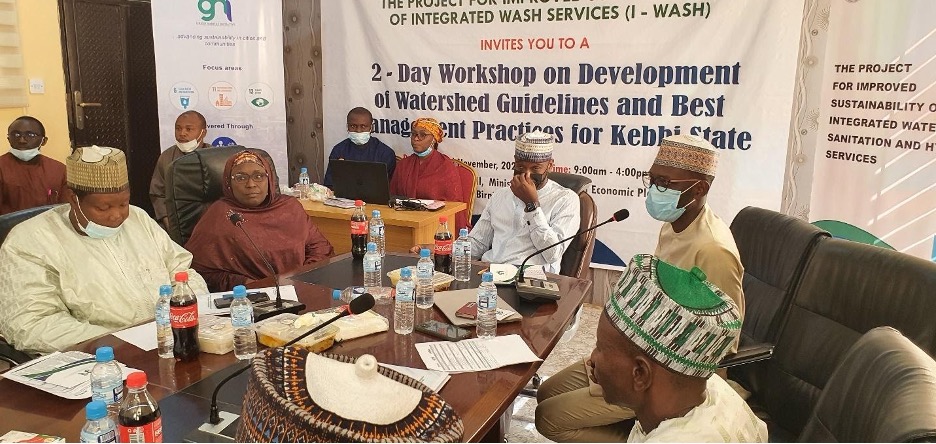Green Habitat Initiative (GHI) organized a five-day training on Community-Led Total Sanitation++ (CLTS++) with funding from the United States Agency for International Development (USAID) under the Project for Improved Sustainability of Integrated Water, Sanitation and Hygiene Services (I-WASH). The project is being implemented across 3 LGAs (Argungu, Gwandu and Kalgo) in Kebbi State and also in Sokoto State.
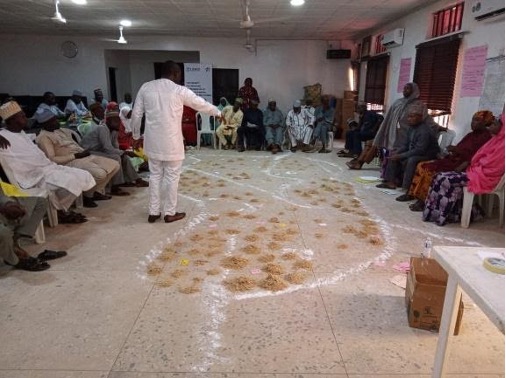
The CLTS training took place in the second week of October (11th –15th October 2021). GHI trained up to thirty officers selected from the target Local Government Area WASH Units in the project areas, including six officers from the Kebbi State Rural Water Supply and Sanitation Agency (RUWASSA).
A key trigger during the workshop was the outbreak of cholera in their various locations which meant that a good amount of time was spent discussing how to administer medical expenses calculation, a triggering tool used to calculate the amount of funds spent on medical bills and how it affects the productivity of households. Participants also realized during this discussion how this tool is used to explain the cycle of poverty.
Two components, Equality and Non-Discrimination (EQND) and Sanitation Marketing (SanMark) were integrated into the training, meaning that it was no longer CLTS as usual but “CLTS++”. The EQND component ensured that all the different groups of people in the community were considered throughout the project implementation, from triggering to the attainment of Open Defecation Free (ODF) status. To demonstrate this, a role-play was facilitated to show the importance of constructing toilet designs that everyone can use (pregnant women, visually impaired, aged, and physically challenged), to ensure no one is left behind.
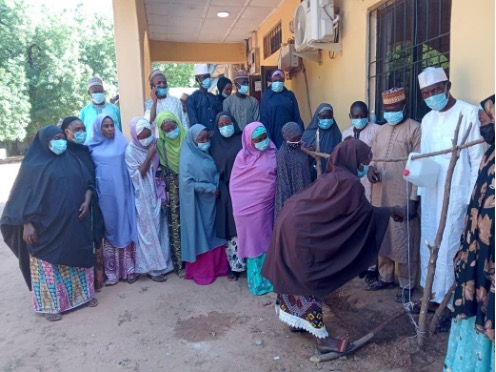
The first three days were devoted to enhancing participants’ knowledge, skills, and attitudes in order to effectively engage communities on CLTS. During this period, participants learned and practiced how to facilitate triggering sessions. Participants went to the field on the fourth day to conduct triggering sessions in four villages. The sessions took a little longer to get started because, despite being mobilized ahead of time, community members had to be summoned from their homes and businesses to the triggering location since most of the communities were in semi-urban areas. On the final day, participants learned how to conduct hygiene promotion, set up community management structures, and developed action plans for their various LGAs.
Due to religious and social inhibitions, men and women were separated during the triggering activity. Most households in Dan-Galadima, Gwandu LGA, had toilets, but maintenance was a major issue, as well as the issue of almajiris who did not have toilets and randomly defecated anywhere in the community. The available public toilet is locked and inaccessible to enable the almajiris to have a place to relieve themselves when nature calls.
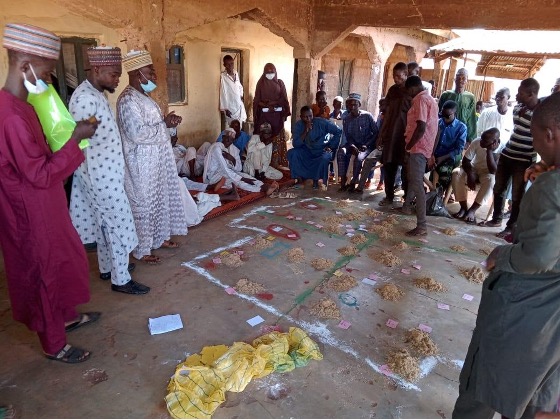
Harisu, a community member from Dangaladima, Gwandu LGA had a bitter experience while heading to the mosque for his morning prayers. He stepped on something soft and warm; when he flashed his torchlight, he discovered that it was feces! He was so disgusted that he had to go home to wash it off, which was a huge disruption of his daily spiritual routine. He was excited that the triggering activity will ensure that everyone uses a toilet.
The women’s group at Dangoma community were too disgusted and ashamed to respond to the questions during triggering, when they saw their “community map” was littered with feces. They said, “It is shameful for visitors to come and see their community full of feces”, and hid the sawdust used as feces from the children who were excitedly showing the facilitators their open defecation areas on the displayed map.
All the communities triggered have developed action plans which contain a sequence of activities they are committed to undertake for their communities to become open defecation-free.
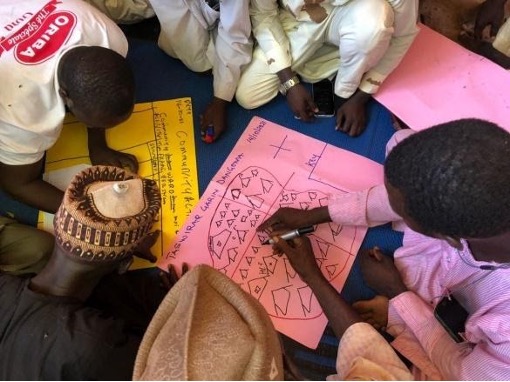
Nafisa Labbo, one of the participants from Gwandu LGA says she has implemented CLTS in the past, but learning about EQND and SanMark enables her to facilitate communities with better results. She did not realize that different people have various challenges that can limit their access to sanitation and hygiene facilities; and that steps need to be taken to leave no one behind. Also, it was difficult for communities to become ODF because of construction challenges, but she has learned through SanMark how to facilitate the construction of durable and improved toilets.

